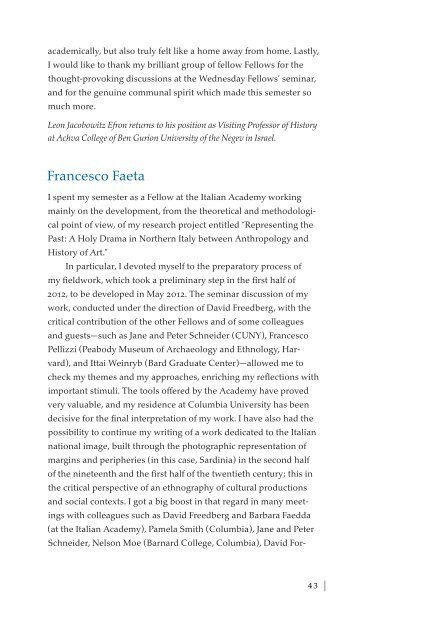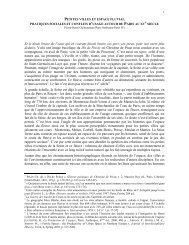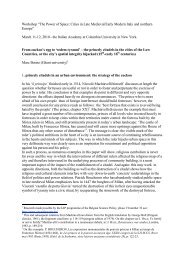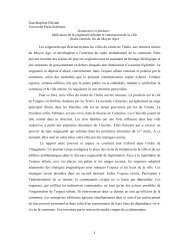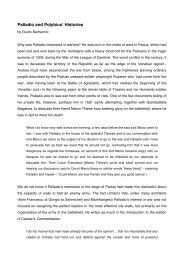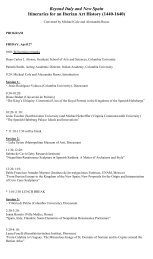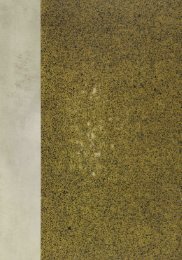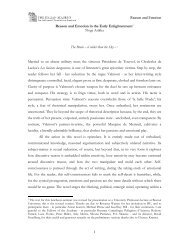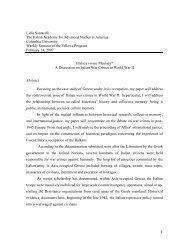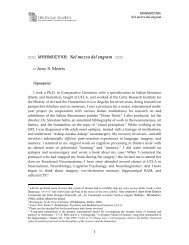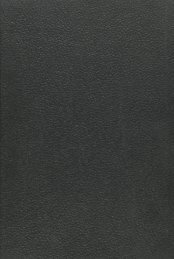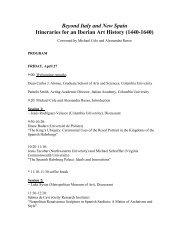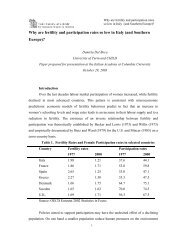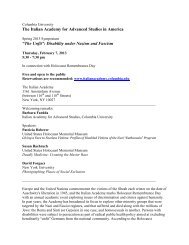2011-2012 - The Italian Academy - Columbia University
2011-2012 - The Italian Academy - Columbia University
2011-2012 - The Italian Academy - Columbia University
Create successful ePaper yourself
Turn your PDF publications into a flip-book with our unique Google optimized e-Paper software.
academically, but also truly felt like a home away from home. Lastly,<br />
I would like to thank my brilliant group of fellow Fellows for the<br />
thought-provoking discussions at the Wednesday Fellows’ seminar,<br />
and for the genuine communal spirit which made this semester so<br />
much more.<br />
Leon Jacobowitz Efron returns to his position as Visiting Professor of History<br />
at Achva College of Ben Gurion <strong>University</strong> of the Negev in Israel.<br />
Francesco Faeta<br />
I spent my semester as a Fellow at the <strong>Italian</strong> <strong>Academy</strong> working<br />
mainly on the development, from the theoretical and methodological<br />
point of view, of my research project entitled “Representing the<br />
Past: A Holy Drama in Northern Italy between Anthropology and<br />
History of Art.”<br />
In particular, I devoted myself to the preparatory process of<br />
my fieldwork, which took a preliminary step in the first half of<br />
<strong>2012</strong>, to be developed in May <strong>2012</strong>. <strong>The</strong> seminar discussion of my<br />
work, conducted under the direction of David Freedberg, with the<br />
critical contribution of the other Fellows and of some colleagues<br />
and guests—such as Jane and Peter Schneider (CUNY), Francesco<br />
Pellizzi (Peabody Museum of Archaeology and Ethnology, Harvard),<br />
and Ittai Weinryb (Bard Graduate Center)—allowed me to<br />
check my themes and my approaches, enriching my reflections with<br />
important stimuli. <strong>The</strong> tools offered by the <strong>Academy</strong> have proved<br />
very valuable, and my residence at <strong>Columbia</strong> <strong>University</strong> has been<br />
decisive for the final interpretation of my work. I have also had the<br />
possibility to continue my writing of a work dedicated to the <strong>Italian</strong><br />
national image, built through the photographic representation of<br />
margins and peripheries (in this case, Sardinia) in the second half<br />
of the nineteenth and the first half of the twentieth century; this in<br />
the critical perspective of an ethnography of cultural productions<br />
and social contexts. I got a big boost in that regard in many meetings<br />
with colleagues such as David Freedberg and Barbara Faedda<br />
(at the <strong>Italian</strong> <strong>Academy</strong>), Pamela Smith (<strong>Columbia</strong>), Jane and Peter<br />
Schneider, Nelson Moe (Barnard College, <strong>Columbia</strong>), David For-<br />
43 |


